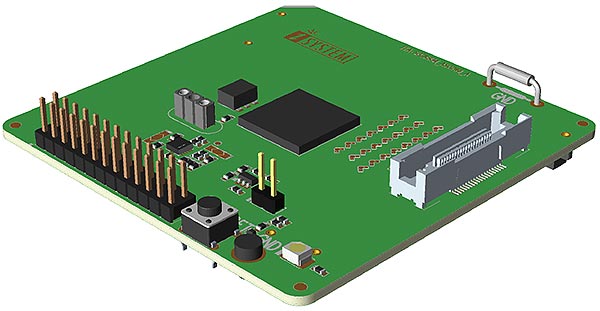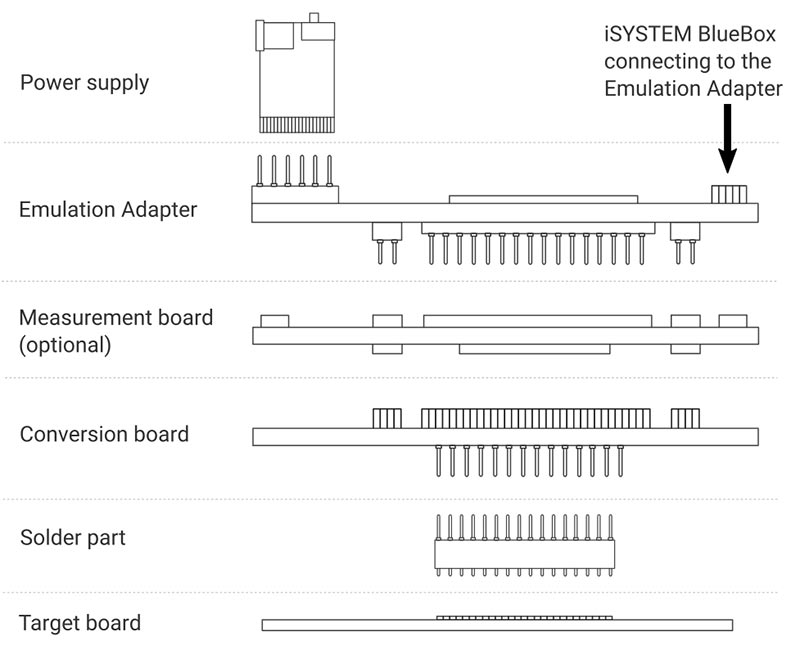Tracing is a powerful technique for debugging and optimizing embedded applications. However, not all MCUs provide the necessary additional pins (trace port) – but thanks to the iSYSTEM Emulation Adapters embedded developers can retrieve trace data e.g. for timing measurement from their target device anyway. iSYSTEM’s latest addition to their portfolio is the NXP S32K344 Emulation Adapter which helps accelerating software tests and speeding up the product’s time-to-market. This Emulation Adapter is populated with an NXP S32K344 “umbrella” device offering extra pins to enable trace for all S32K3 derivatives.
NXP’s S32K3 is a series of general-purpose microcontrollers for Automotive applications like battery management systems, body controllers or infotainment IO controllers. The family includes scalable 32-bit Arm® Cortex®-M7-based MCUs in single, dual, and lockstep core configurations supporting ASIL B/D safety applications. iSYSTEM’s new NXP S32K344 Emulation Adapter provides full debug and trace capabilities for S32K311, S32K312, S32K314, S32K322, S32K324, S32K341 and S32K342 devices in packages QFP-48, MaxQFP-100 and MaxQFP-172.
For tracing purposes, the developer can simply replace the targeted NXP microcontroller on the PCB with the emulation adapter. The adapter offers the same core features as the original MCU but adds that crucial additional trace port. In fact, the adapter can even be used for standalone operations as an “evaluation board” by using the optional power supply, e.g., until some not-yet-deliverable hardware becomes available.
Thanks to the NXP S32K344 Emulation Adapter and with the aid of iSYSTEM’s BlueBox and winIDEA debugging tool, the developer can now fully leverage the benefits of tracing: They can non-intrusively analyze the timing behavior of an application, perform code coverage metrics and measure the CPU load or localize flaws and errors in the code for further debugging. These immediate insights into the software help improving the code quality and shorten development times for a faster time-to-market.
Further Links and Resources
- iSYSTEM Emulation Adapter NXP S32K344: https://www.isystem.com/media/news-insights/posts/nxp-s32k344-emulation-adapter.html
- More iSYSTEM Emulation Adapters for Cypress Traveo II, Infineon AURIX, Renesas RH850, STM SPC5, and NXP MPC5xxx microcontrollers: https://www.isystem.com/products/hardware/emulation-debug-adapters/emulation-adapters.html
- iSYSTEM Tutorial “Emulation Adapter: Introduction”: https://youtu.be/o_XMUdkTF3c




